
Djibouti, one of Africa’s smallest countries with potential for growth
Home
Stories
Djibouti, one of Africa’s smallest countries with potential for growth
Towards the end of 2023, UNICEF Aotearoa CEO, Michelle Sharp together with UNICEF CEOs from Poland, Austria and Slovakia made a trip to the East African country of Djibouti. The purpose? To see the impact of UNICEF’s programmes, to meet the local communities benefitting from these programmes and to assess the potential of further developmental goals there.
Located in the Horn of Africa amongst a group of countries - Ethiopia, Eritrea and Somalia- which for decades have been at the scourge of socio-political unrest, Djibouti is a country characterized by political stability in a turbulent region.
The small country has not been immune to the surrounding conflict of its neighbours over the years or the compounded drought and devastating climate-related crises. With more than 30,000 refugees and more than 150,000 migrants crossing its land each year on their way to or from the Arabian Peninsula, the droughts have caused mass internal and cross-border population displacement, as well as measles and polio epidemics.

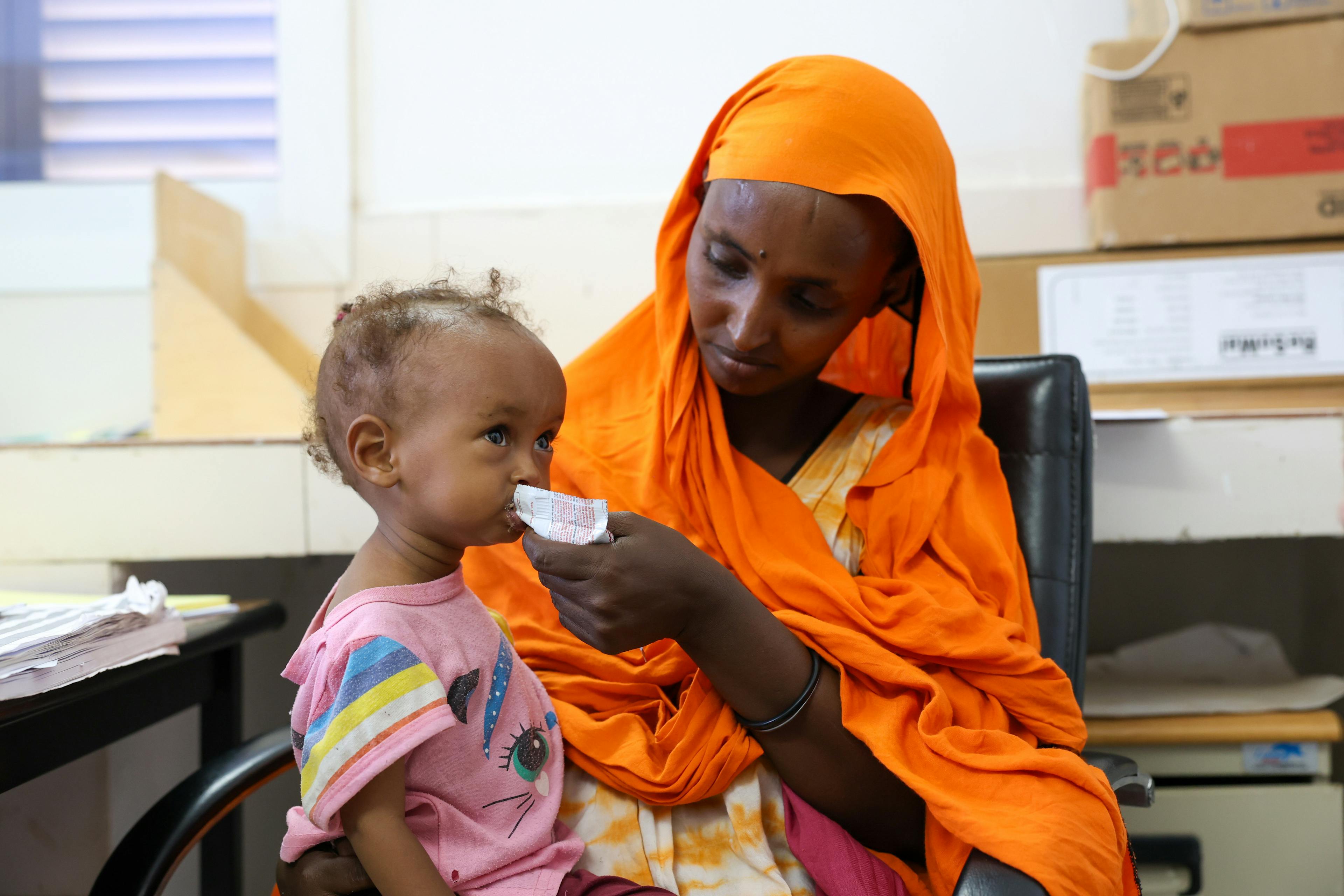
Despite all of this, as well as being severely affected by the COVID-19 Pandemic, and the security situation in neighbouring Ethiopia, Djibouti’s economy experienced a rebound in growth in 2021. Shortly after, the drought and the war in Ukraine slowed this welcomed economic surge.
Yet, the potential for economic diversification and growth in Djibouti is huge, thanks to its geographical position, its port and its telecommunications infrastructure. This was one of the many reasons that this group of UNICEF National Committee CEOs travelled to Djibouti, to see the impact of our existing programmes there as well as to assess how UNICEF could effectively facilitate collaboration for maximum impact in the future.
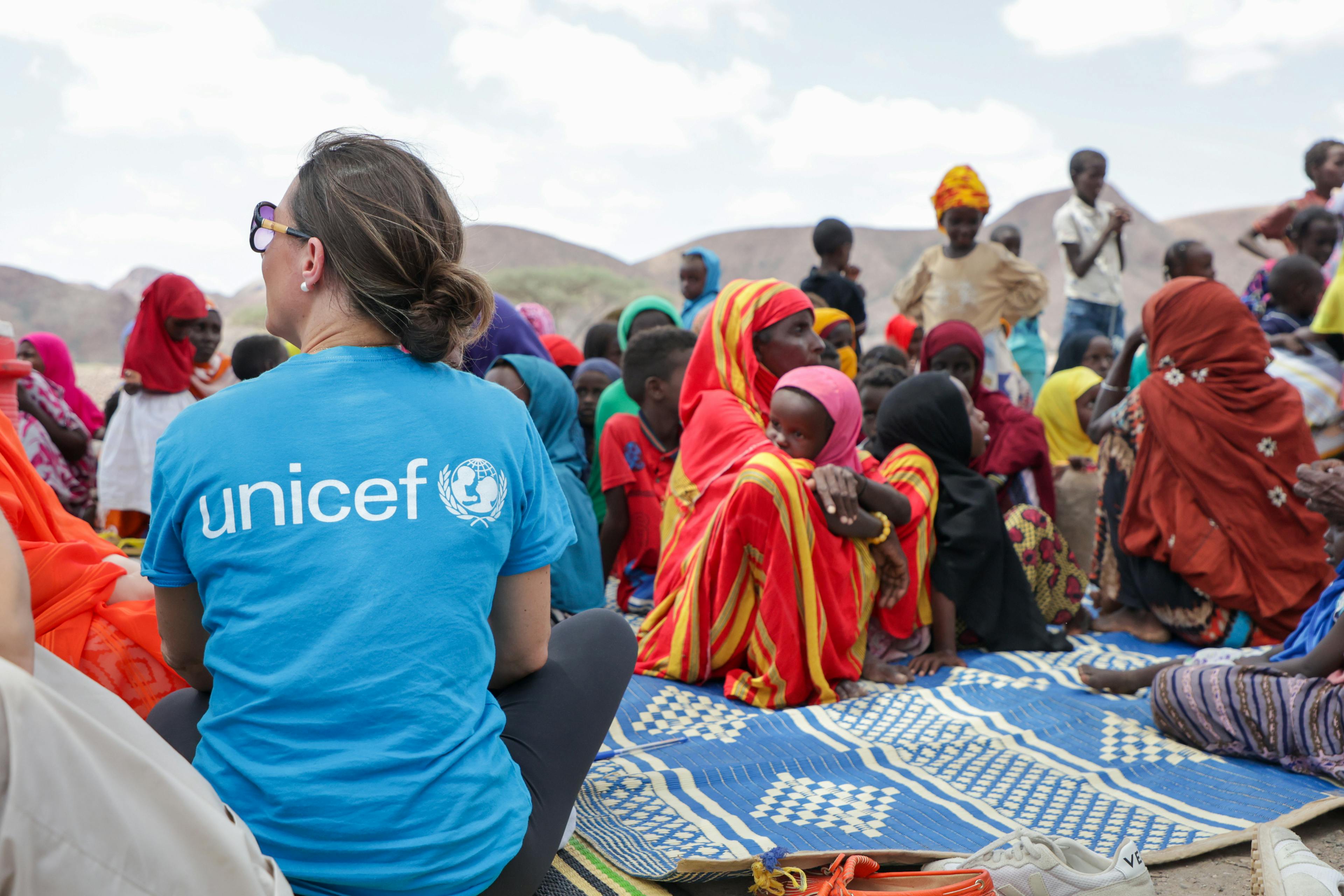
Michelle Sharp, UNICEF Aotearoa’s CEO, shares some reflections and insights from the trip.
“On the border of Djibouti and Ethiopia, near the Dikhil region, we visited a village and were able to see healthcare and education programmes in action. In the village school, a young girl with a sparkle in her eyes called me over to sit with her and her friend.
We couldn’t speak the same language – due to the remoteness of the village they have their own dialect - but we found a way to communicate through laughter and hand gestures. They told me their names, which I couldn’t pronounce, and I told them mine, which they couldn’t pronounce either, causing fits of giggles! I spent half an hour with them as they proudly showed me their work,” says Michelle.
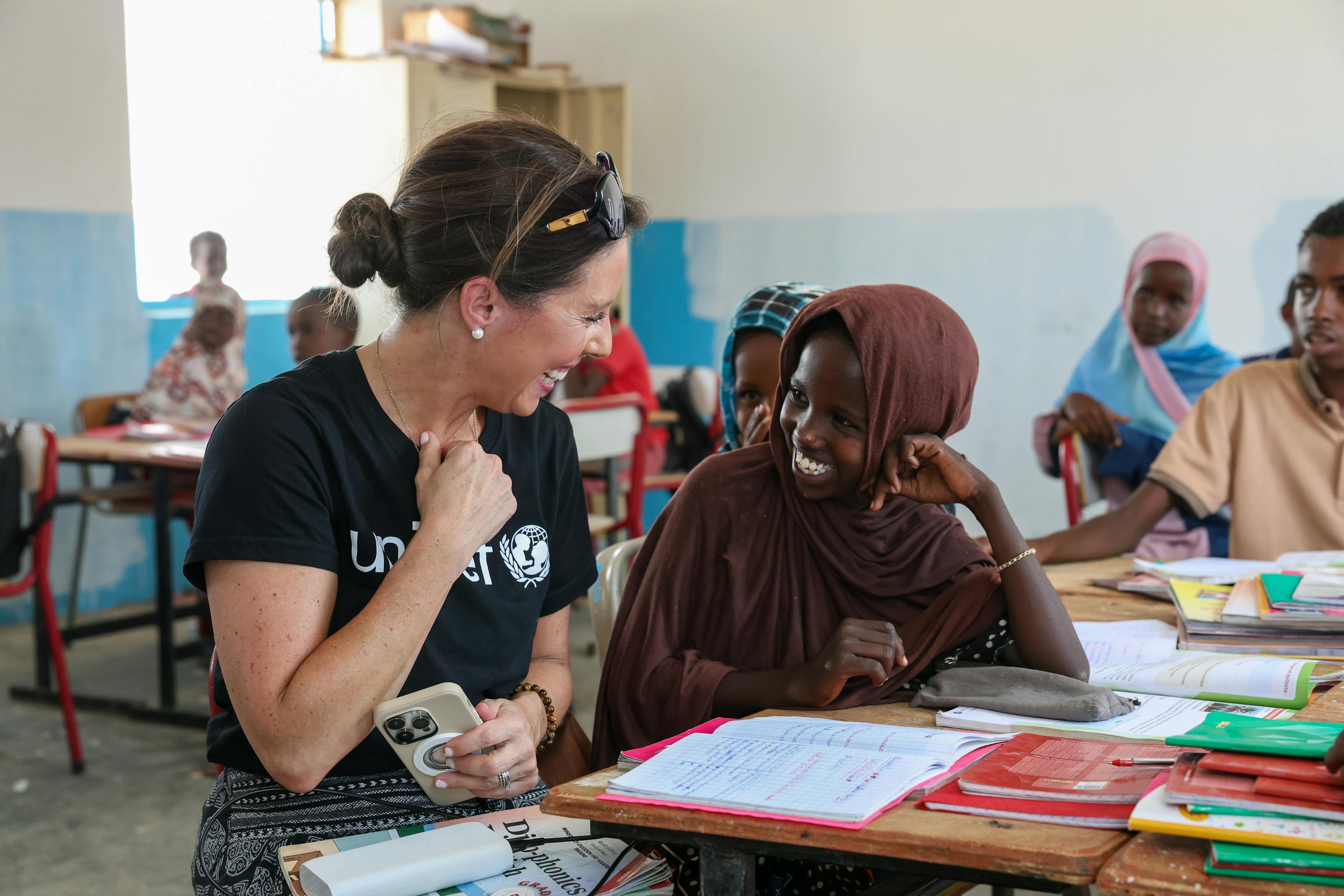
"UNICEF provides materials and equipment for this very remote school to help educate the children and break the unemployment cycle. We also provide solar-powered water bores so the villagers in this very arid desert can access water, enabling the girls to remain in school rather than having to travel to fetch water.
The village has a mixture of permanent residents living in very simple huts made of twigs and twine as well as several displaced people who have crossed the border into Djibouti from neighbouring Ethiopia," she says.
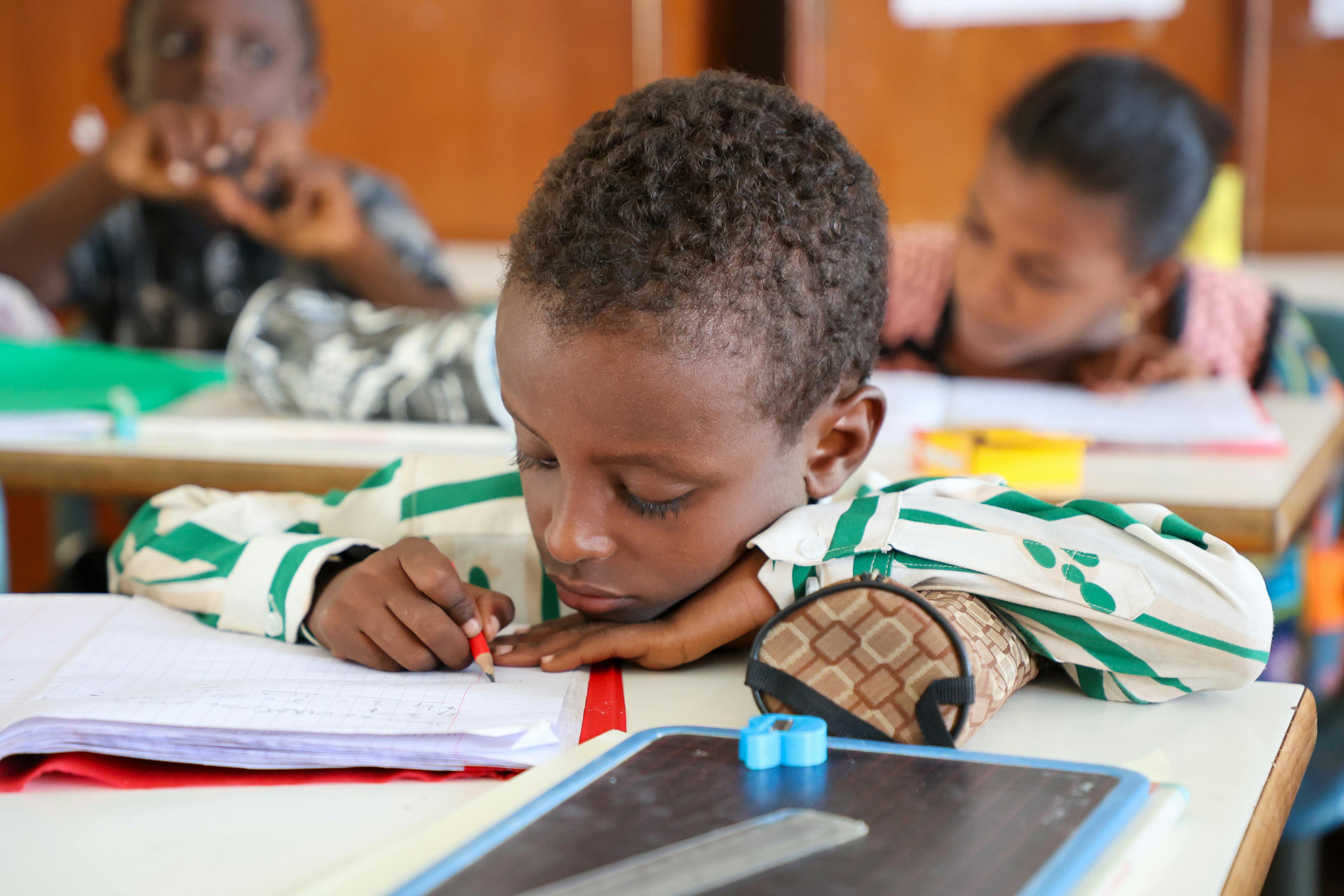
"The aim of the visit was to see UNICEF’s work in the field and give those on the trip a first-hand view of where the funds raised go. To see the impact UNICEF has both at the community level, but also at the system level, namely Government influence.
We saw some of the most challenging environments in which our UNICEF colleagues operate, as well as how effective and efficient our fund utilisation is. We saw great examples of collaboration for maximum impact and we left committed to support the communities,” says Michelle Sharp.
8 Things About Djibouti You Should Know
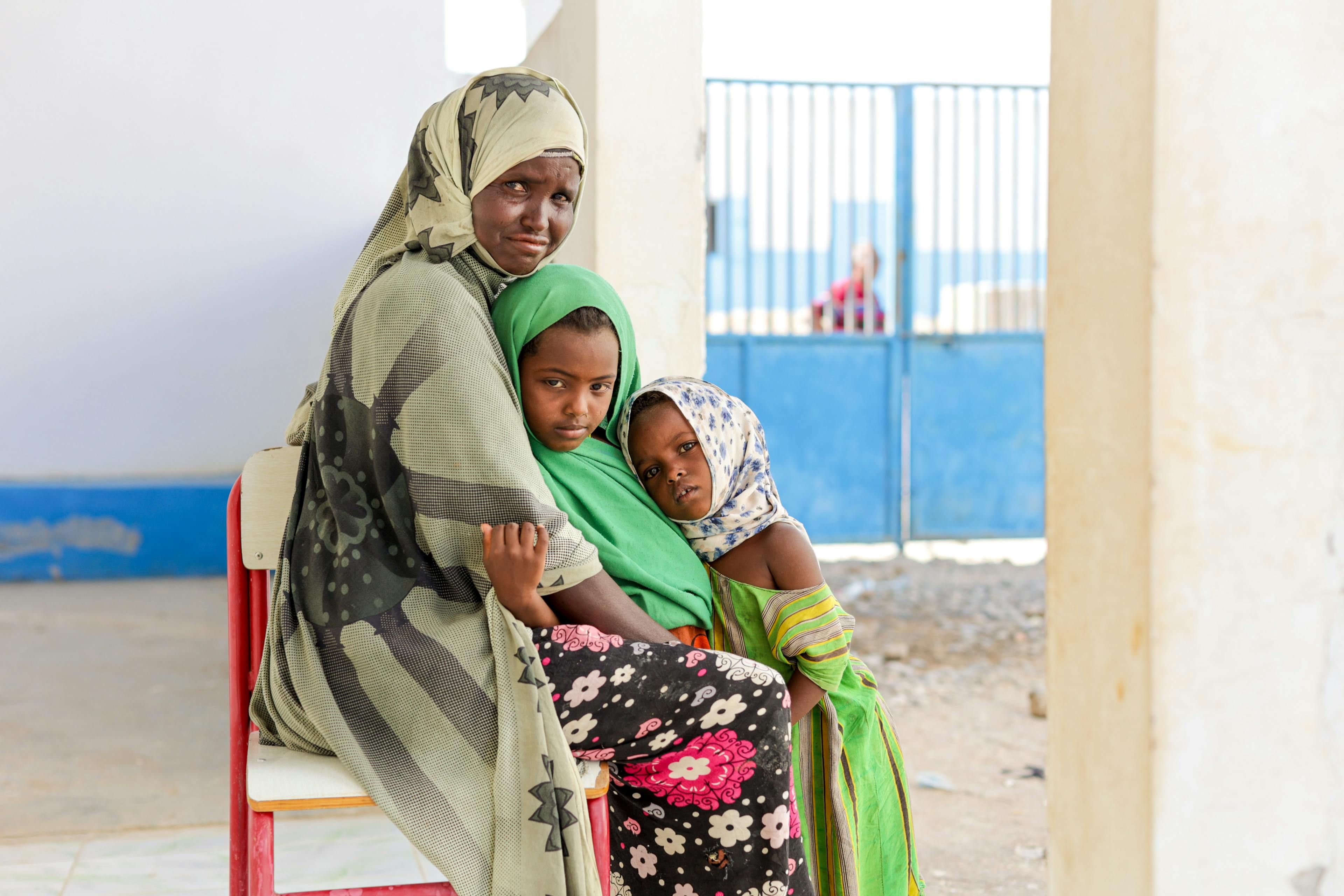
- It has a population of only 1 million people.
- 70% of the population live in urban areas, mainly Djibouti city with roughly 600k ppl.
- More than half of the population is under 25 years old and 27% of them are unemployed.
- 21% of the population lives in poverty.
- Djibouti is the 3rd smallest country in Africa.
- It’s also one of only 16 countries with no trees, its environment is arid and desert.
- Lake Assal in the centre of the country is the lowest point in Africa (155m below sea level) and the saltiest lake on the continent.
- Djibouti is positioned on the Afar Triple Junction – a region where three divergent segments of the Earth’s crust – Somalian, Nubian and Arabian plates- are tearing away from each other.